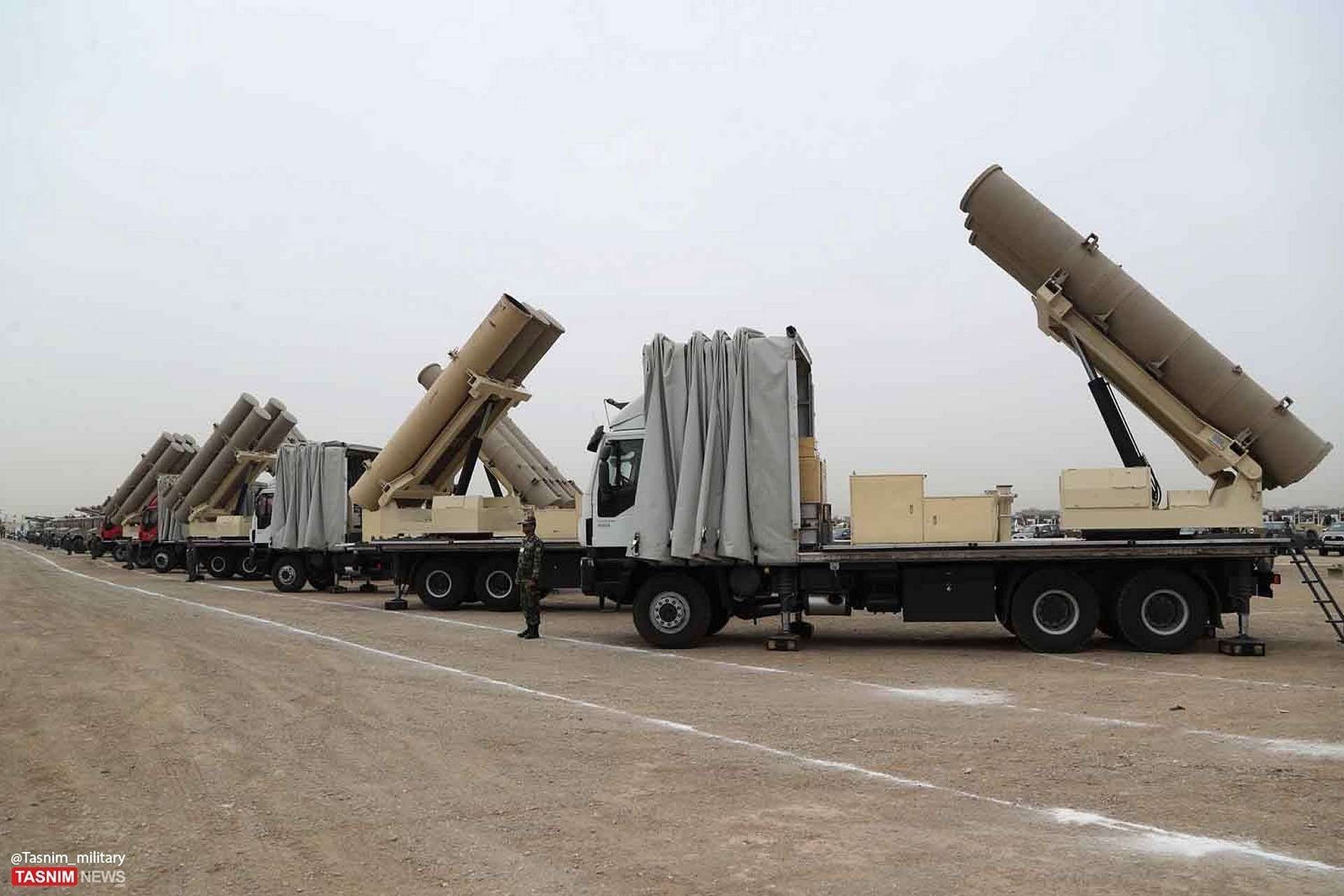Breaking News
US Confirms Iran's Transfer of Fath 360 Ballistic Missiles to Russia for Use in Ukraine.
On September 10, 2024, the United States officially confirmed reports that Iran has transferred Fath 360 short-range ballistic missiles to Russia. According to Pentagon Press Secretary Air Force Maj. Gen. Pat Ryder, these missiles are likely to be deployed by Russia within the coming weeks, potentially exacerbating the devastation already caused by the ongoing war in Ukraine. Ryder emphasized that the U.S. is concerned about the increased threat these weapons pose to Ukrainian civilians.
Follow Army Recognition on Google News at this link

The Fath 360 is an Iranian-made short-range ballistic missile able to reach a range from 100 to 150 km. (Picture source: TASNIM Iranian press agency)
During a briefing, Pentagon Press Secretary Air Force Maj. Gen. Pat Ryder highlighted that the U.S. currently does not have an exact count of how many missiles have been delivered, but added that the situation remains under close scrutiny. The Fath 360 ballistic missiles, which boast precision targeting capabilities at close range, could significantly enhance Russia's ability to strike targets in Ukraine.
The Fath 360 is a close-range ballistic missile developed by Iran, known for its precision and mobility. It can deliver a payload with high accuracy over a range of approximately 100-150 kilometers, making it suitable for targeting enemy positions, infrastructure, and military assets. The missile is designed for rapid deployment and can be launched from mobile platforms, which enhances its operational flexibility on the battlefield. Its guidance system and solid-fuel propulsion allow for swift targeting, making it a potent asset for short-range strikes, particularly in areas with active combat zones.
Russia’s invasion of Ukraine, which began in February 2022, has led to an extensive international effort to support Ukraine militarily. Ryder stressed that since the start of the invasion, the U.S. and partner nations have prioritized air defense as a key component of their security assistance. This focus will continue, particularly in light of the new threat posed by the Iranian-supplied missiles.
"Since the beginning of the Russian invasion, support to Ukraine has focused on air defense, and that will continue," Ryder stated, adding that the U.S. remains committed to addressing the threat of both short-range and long-range missile attacks.
The U.S. has already committed over $55.9 billion in security assistance to Ukraine, with a significant portion allocated to air defense systems. The sophisticated equipment provided are Patriot air defense batteries, National Advanced Surface-to-Air Missile Systems (NASAMS), HAWK systems, Stinger anti-aircraft missiles, and Avenger air defense systems. These systems have been essential in protecting Ukrainian cities from Russian missile and drone strikes.
To enhance Ukraine’s defensive capabilities, the U.S. and its allies have been actively training Ukrainian forces on using these advanced systems. Additionally, the Ukrainian military has received training on other critical platforms, such as howitzers and F-16 Falcon aircraft, helping bolster their ability to repel Russian advances.
The transfer of Iranian Fath 360 ballistic missiles marks a new development in Iran’s support for Russia in the conflict. Ryder confirmed that the U.S. has evidence that "dozens" of Russian military personnel have been trained in Iran on how to operate the Fath 360 missile system. This collaboration further deepens the ties between Moscow and Tehran, raising concerns about the potential for increased Iranian involvement in the war.
The Fath 360 missiles, known for their accuracy and relatively short range, pose a distinct challenge for Ukraine’s air defense systems, which have thus far successfully countered many Russian aerial threats. The introduction of these new missiles may force Ukraine and its Western backers to recalibrate their defense strategies.
As tensions escalate, the U.S. and its allies are expected to continue increasing their military support to Ukraine. Ryder reassured that the U.S. is fully committed to countering the new missile threat posed by Russia’s acquisition of Iranian weapons. He reiterated that air defense will remain a top priority in upcoming support packages, signaling a continued international effort to protect Ukraine from further Russian aggression and the unwavering determination of the U.S. and its allies in this endeavor.


























